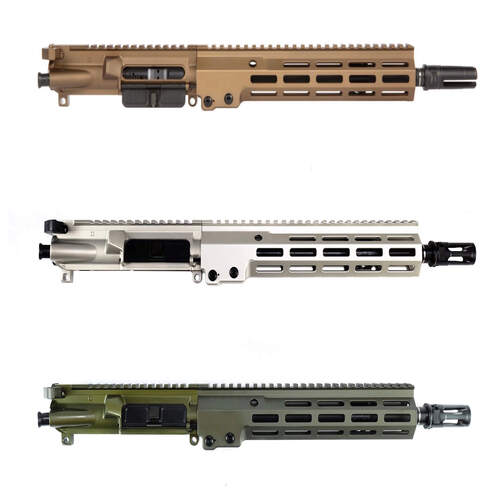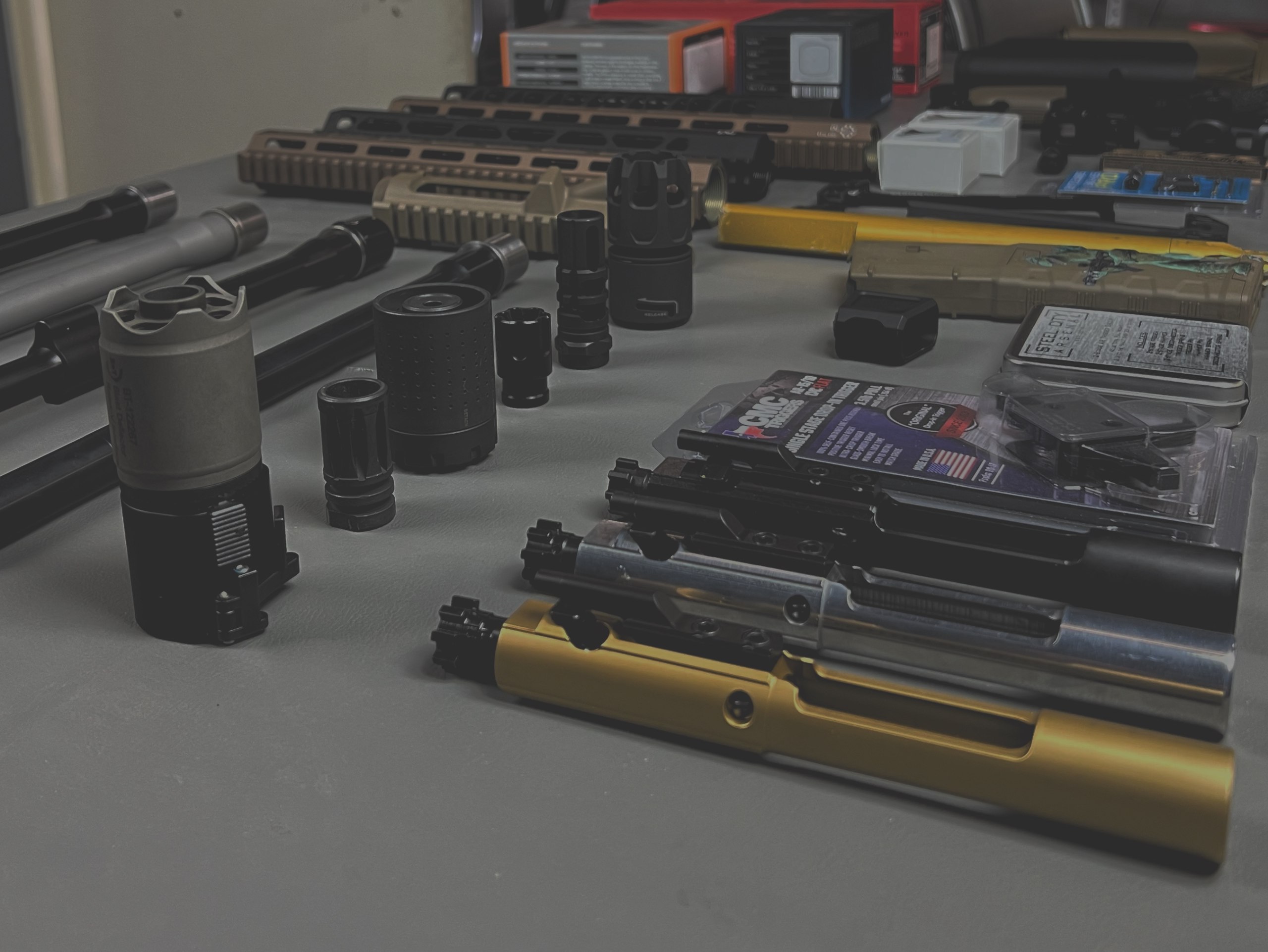The AR15 platform has become synonymous with versatility, allowing users to customize and modify their rifles to suit their specific needs. One crucial aspect of AR15 ownership is selecting the right caliber, as different calibers offer distinct advantages and disadvantages. In this educational and entertaining blog post, we’ll explore four popular AR15 calibers – 5.56mm, .300 Blackout, 6.5mm Grendel, and 9mm – delving into their characteristics, benefits, and drawbacks. Whether you’re a new gun owner or looking to make your first AR15 purchase, understanding the nuances of each caliber will empower you to make an informed decision.
- 5.56mm: Versatility Meets Wide Availability
The 5.56mm caliber is the quintessential choice for many AR15 enthusiasts due to its widespread availability and adaptability. Let’s dive into its pros and cons:
Pros:
- Wide Availability: As one of the most prevalent calibers worldwide, 5.56mm ammunition can be found almost anywhere, ensuring a consistent supply for shooters.
- High Muzzle Velocity: The 5.56mm round boasts a high muzzle velocity, resulting in a flatter trajectory and enhanced accuracy at longer ranges.
- Manageable Recoil: This caliber offers manageable recoil, allowing for faster follow-up shots and better control during rapid-fire engagements.
- Effective Armor Penetration: Designed for military and law enforcement applications, the 5.56mm excels in effective armor penetration scenarios.
Cons:
- Limited Stopping Power: Despite its effectiveness in most situations, the 5.56mm may lack the stopping power of larger calibers, potentially requiring more rounds to neutralize threats.
- Over-penetration Concerns: The high velocity of 5.56mm rounds may lead to over-penetration in soft targets, raising safety concerns in certain scenarios.
- .300 Blackout: Stealth and Versatility Combined
The .300 Blackout has gained popularity for its unique characteristics, catering to specific shooting requirements. Let’s explore its pros and cons:
Pros:
- Versatility: One of the primary draws of .300 Blackout is its ability to offer both subsonic and supersonic rounds, making it suitable for various shooting scenarios, including suppressed shooting.
- Quieter Suppressed Fire: Paired with a suppressor, the .300 Blackout provides significantly quieter shooting compared to other calibers, making it ideal for stealth applications.
- Improved Ballistics with Suppressed Fire: Unlike the 5.56mm, which can experience reduced performance when used with suppressors, the .300 Blackout maintains its effectiveness even with a suppressor attached.
Cons:
- Ammunition Cost and Availability: As a specialized caliber, .300 Blackout ammunition may be pricier and less widely available than more mainstream options like the 5.56mm.
- Shorter Effective Range: The subsonic rounds of .300 Blackout have a reduced effective range compared to the supersonic rounds, limiting its long-range capabilities.
- 6.5mm Grendel: The Precision Enthusiast’s Choice
If precision long-range shooting is your passion, the 6.5mm Grendel might be your ideal caliber. Let’s examine its pros and cons:
Pros:
- Enhanced Ballistics: The 6.5mm Grendel delivers improved long-range ballistics and accuracy, outperforming the 5.56mm and .300 Blackout in this aspect.
- Better Energy Retention: This caliber retains more energy at longer distances, translating to improved terminal performance.
- Long-Range Precision Shooting: The 6.5mm Grendel shines in precision shooting, making it a preferred choice for long-range enthusiasts and competitive shooters.
Cons:
- Limited Ammo Availability: While the popularity of the 6.5mm Grendel is growing, it may still have limited availability and higher costs compared to more mainstream calibers.
- Recoil Sensitivity: Some shooters may experience slightly higher recoil with the 6.5mm Grendel compared to the 5.56mm, potentially affecting follow-up shot speed.
- 9mm: A Balanced and Affordable Option
If low recoil and cost-effectiveness are your priorities, the 9mm AR15 variants might be the perfect fit. Here are the pros and cons:
Pros:
- Low Recoil: The 9mm offers minimal recoil, allowing for easy control and faster follow-up shots, particularly important for newer shooters.
- Affordable Ammunition: Widely available and relatively inexpensive, 9mm ammunition presents an economical option for training and practice sessions.
- Pistol Caliber Magazine Compatibility: 9mm AR15 variants often share magazine compatibility with popular handguns, streamlining logistics for shooters with both platforms.
Cons:
- Limited Effective Range: The 9mm’s effective range is shorter compared to rifle calibers like the 5.56mm and 6.5mm Grendel, making it more suitable for close-quarters engagements.
- Stopping Power: While the 9mm is adequate for self-defense and general use, it may lack the stopping power of larger rifle calibers in certain scenarios.
Conclusion: Choose Your Ideal AR15 Caliber Wisely
In conclusion, selecting the right AR15 caliber requires careful consideration of your shooting needs, preferences, and budget. The 5.56mm stands as a versatile and widely available option, while the .300 Blackout excels in suppressed shooting scenarios. The 6.5mm Grendel caters to precision long-range shooting enthusiasts, and the 9mm offers low recoil and compatibility with pistol-caliber magazines.
As a new gun owner or a first-time AR15 buyer, it’s crucial to understand the unique benefits and drawbacks of each caliber to ensure you get the most out of your AR15 platform. Take your time, do your research, and consider seeking advice from experienced shooters to make a confident and informed decision. Remember, the perfect AR15 caliber is the one that aligns with your shooting goals and allows you to enjoy the full potential of this legendary platform.
Check out what Ammo.com has to say about the 11 Best AR Calibers in 2024!




